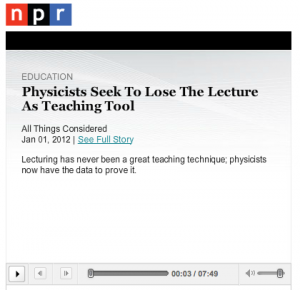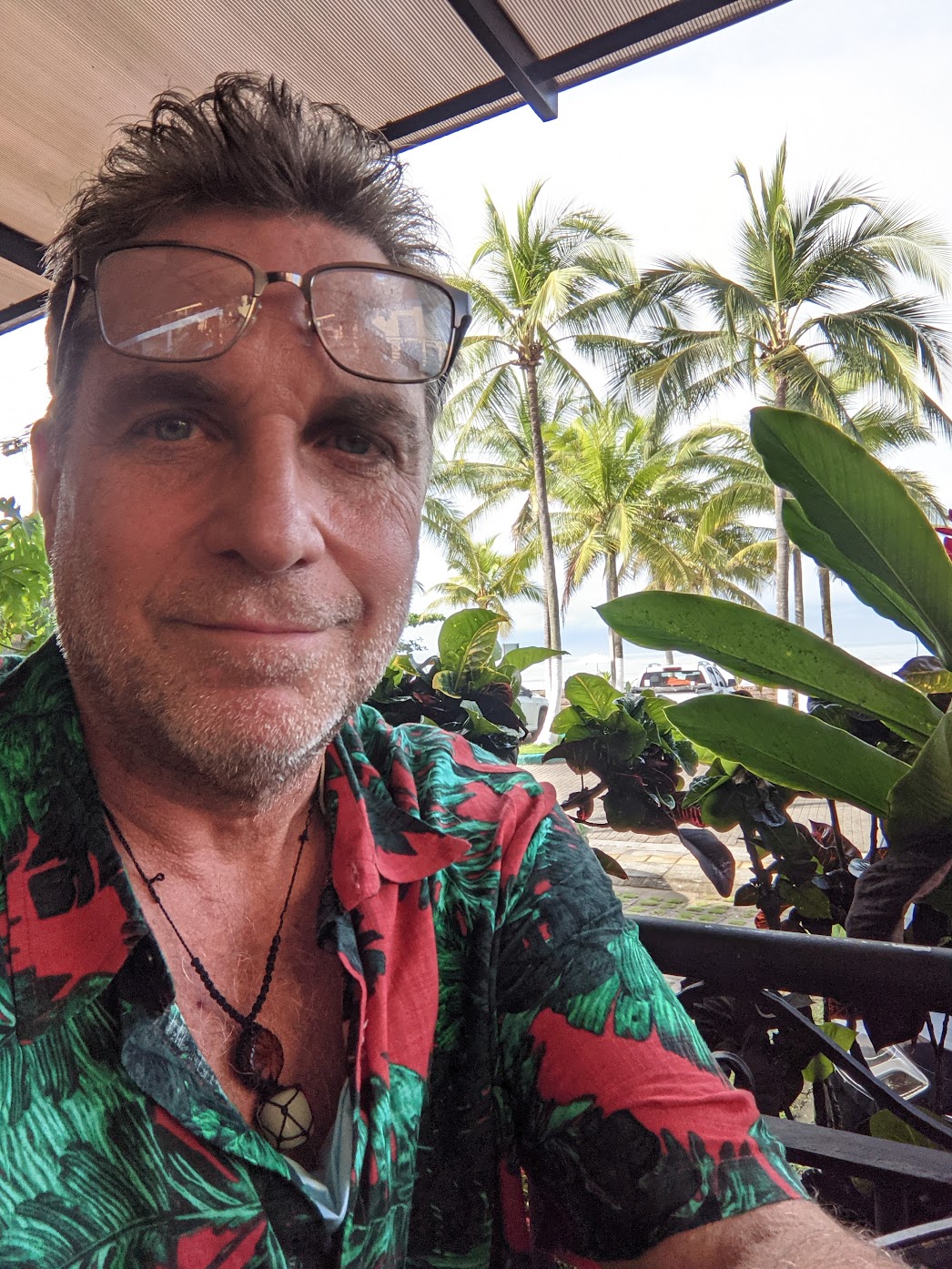Days of the “Sage on Stage” are Over
 Experiment: A test was given to physics students all over the world. Results showed that students only comprehend 14% more its basic concepts over a quarter.
Experiment: A test was given to physics students all over the world. Results showed that students only comprehend 14% more its basic concepts over a quarter.
Outcome: Listening someone to talk is not an effective way for humans to learn. However, if small group discussions are used to learn the same material, it was found that comprehension gains triple by the end of a semester.
The days of the ‘sage on stage’ are over. It is no longer enough to just have information. Teachers today have to be facilitators of a process that enables their students to self-learn through interactive conversations and activity. This is what I like to call “Collaborative Design”. Listen to this great interview from NPR news on how our antiquated lecture framework, an educational model that’s been used for centuries, is no longer enough.
Similar Posts:
- Vic on Creative Learning
- Innovation and the future of socialism and capitalism
- Vic on Sustainable Innovation
- Ritual’s Role in Social Innovation and Design
- Vic on Keepin' it Green – the Color of "Sustainable Innovation"















 Inquiry: Starting everyone of my questions with ‘open ended’ question words including the 6 ‘W’s: WHY is it this way, WHAT is it exactly, (w)HOW does it work, WHO is involved, WHEN is it enacted, WHERE does it reside or show up. In this way, your research will expand from isolated assumptions into broader understandings and improve data outcomes.
Inquiry: Starting everyone of my questions with ‘open ended’ question words including the 6 ‘W’s: WHY is it this way, WHAT is it exactly, (w)HOW does it work, WHO is involved, WHEN is it enacted, WHERE does it reside or show up. In this way, your research will expand from isolated assumptions into broader understandings and improve data outcomes. A more challenging but (in my view) more fun part of development, is enabling your research into a ‘social performance’ process for creating social capital and social innovation. This is done through 3 phases as follows (note ‘phases’ are different than ‘stages’):
A more challenging but (in my view) more fun part of development, is enabling your research into a ‘social performance’ process for creating social capital and social innovation. This is done through 3 phases as follows (note ‘phases’ are different than ‘stages’):